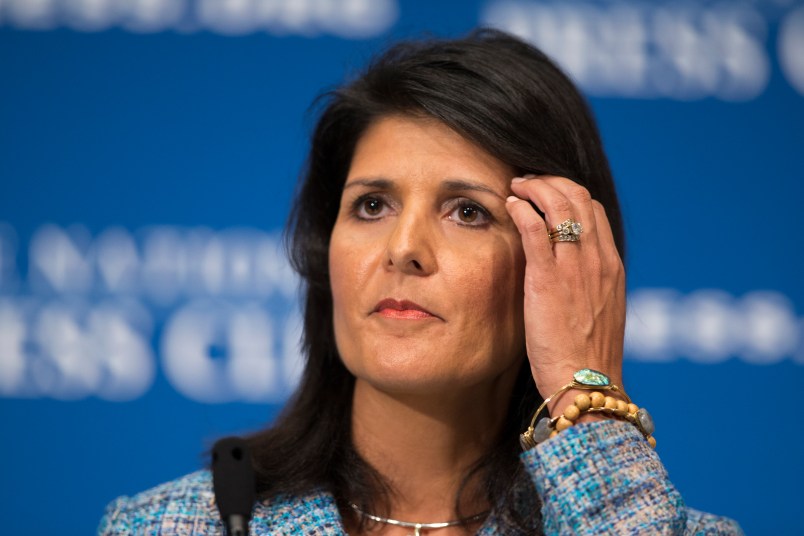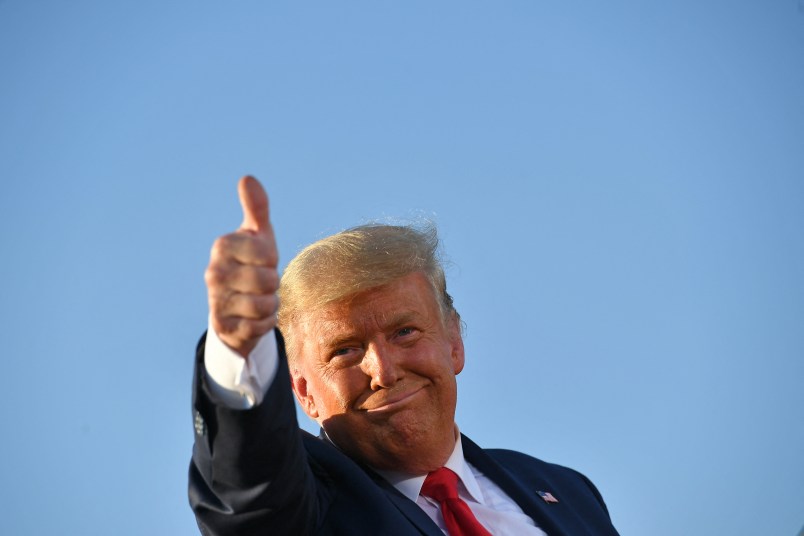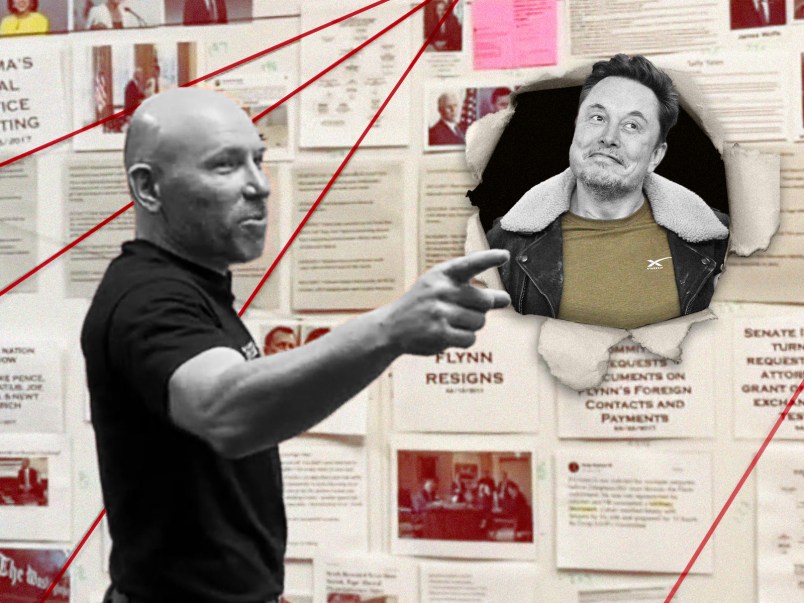WASHINGTON (AP) — U.S. Ambassador to the U.N. Nikki Haley closed the door Wednesday to the possibility of moving the ambassador’s residence to Trump Tower, telling Congress she’ll remain at a New York hotel “until it’s time for me to leave.”
The U.S. moved its longtime ambassador’s residence in New York out of the famed Waldorf Astoria hotel after a Chinese-owned company purchased it. Haley confirmed that the decision was due to concerns about spying and security related to China.
The ambassador’s residence was moved to another hotel near U.N. headquarters, but there’s been speculation since President Donald Trump took office that he might move it again to midtown Manhattan building that bears his family’s name.
Not so, Haley told Congress. She said she hadn’t picked her current location, but planned to stay there nonetheless.
“I’m not moving to Trump Tower,” she said.
Haley’s comments came during two days of testimony before a pair of committees in the House. On Tuesday, Haley took some lawmakers by surprise when she seemed to assert that the Trump administration’s policy was to prevent any Palestinians from serving in U.N. positions unless and until the U.S. recognizes an independent Palestinian state.
Earlier this year, the U.S. blocked the appointment of Salam Fayyad, the former Palestinian prime minister, to lead the U.N.’s political mission in Libya. Though Fayyad is a well-respected international figure and the post was unrelated to the Israeli-Palestinian conflict, the U.S. described it as an act of support for Israel.
“If we don’t recognize Palestine as a state, we needed to acknowledge, also, that we could not sit there and put a Palestinian forward until the U.S. changed its determinations on that front,” Haley said.
On Wednesday, the State Department stood by Haley’s remarks, tying the move to block Fayyad’s appointment to U.S. concerns about “Palestinians’ efforts to achieve recognition of Palestine as an independent state through the United Nations system.”
Still, the U.S. wouldn’t say whether that policy applies going forward to any Palestinian who might be tapped for any U.N. job, nor whether it would also force the U.S. to block the appointment of diplomats associated with other entities not recognized by the U.N. as full-fledged independent nations, such as the Vatican.
“This situation is unique and should be viewed through the lens of the broader Israeli-Palestinian conflict,” said Edgar Vasquez, a spokesman for the State Department’s Bureau of Near Eastern Affairs.









